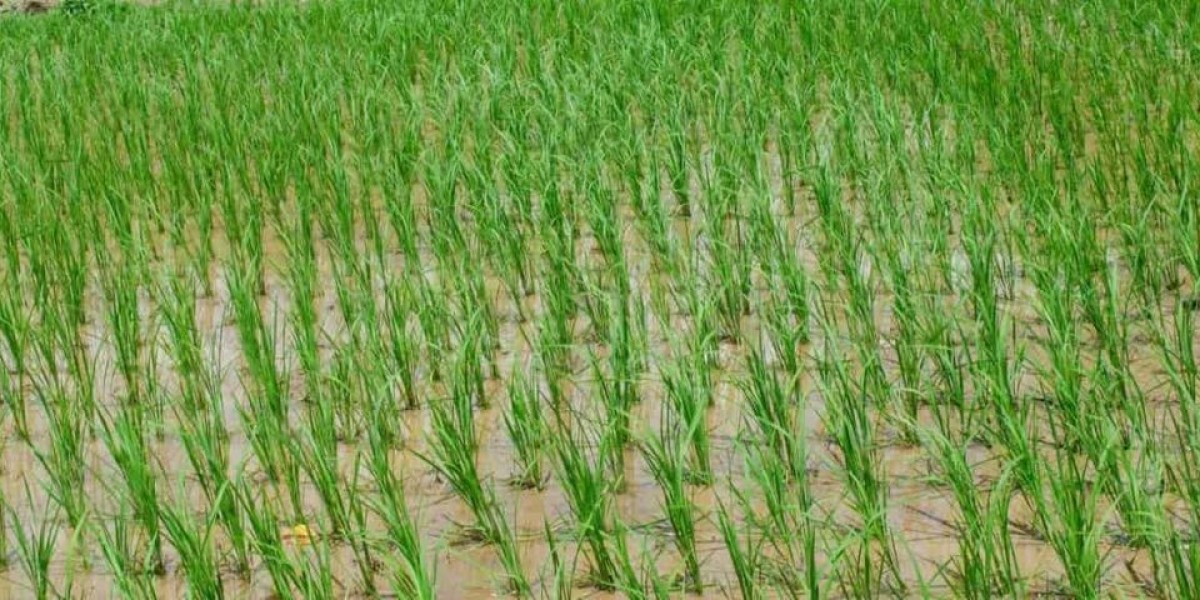Introduction
Agriculture remains the backbone of Pakistan’s economy, and Okara stands out as a fertile district known for its rich agricultural history and dynamic farming community. With advancements in agricultural techniques and inputs, farmers are now embracing modern methods to improve productivity and sustainability. As challenges like declining soil fertility, unpredictable climate patterns, and pest resistance become increasingly common, the role of reliable agricultural practices and inputs becomes even more significant.
In this context, the adoption of efficient farming methods, combined with quality fertilizers and effective soil management, is essential. Okara’s farmers, traditionally known for growing crops like wheat, sugarcane, rice, maize, and vegetables, are now prioritizing sustainable practices that enhance yield while maintaining ecological balance. This article explores how farmers in Okara can integrate better soil management, effective irrigation, and scientifically balanced nutrient application into their farming systems.
The Importance of Balanced Nutrient Management
A key pillar of high agricultural productivity is balanced nutrient management. Plants require macro and micronutrients for optimal growth, which they usually absorb from the soil. However, repeated cropping without replenishing nutrients leads to soil exhaustion, resulting in reduced yields and poor crop health.
Farmers in Okara are becoming increasingly aware of the importance of using the right combination of nitrogen, phosphorus, and potassium (NPK) to restore soil fertility. It’s not just about applying fertilizers — it’s about applying the right type and amount based on crop requirement and soil analysis.
Many modern farmers now consult local agri-experts to conduct soil tests before deciding on fertilizer application, ensuring more targeted and cost-effective usage. This approach not only improves yields but also reduces environmental degradation caused by over-fertilization.
Sustainable Irrigation Techniques in Okara
Water is the lifeline of agriculture, and in regions like Okara, where canal irrigation and tube wells are the primary sources, the efficient use of water is vital. Traditional flood irrigation methods lead to water wastage and increase the risk of salinity in the soil.
To counter this, farmers are increasingly turning toward modern irrigation techniques such as:
Drip irrigation: Delivers water directly to the root zone, minimizing evaporation losses.
Sprinkler systems: Distribute water evenly across fields and save labor.
Laser leveling: Ensures uniform land leveling for even water distribution.
These technologies may seem capital-intensive at first, but they offer long-term savings in water use, energy consumption, and better crop productivity. The Punjab government and agricultural institutions are also offering subsidies to make these systems more accessible to smallholder farmers.
Integrated Pest Management: A Smart Approach
Farmers in Okara face multiple pest challenges that threaten crop productivity, including aphids, whiteflies, bollworms, and locusts. Excessive reliance on chemical pesticides often leads to resistance development, environmental pollution, and residue issues.
This has given rise to Integrated Pest Management (IPM) — a holistic approach that combines biological, cultural, physical, and chemical tools in a coordinated way. IPM promotes:
Use of pest-resistant crop varieties
Regular field monitoring
Biological control through natural predators like ladybugs
Mechanical traps and barriers
Judicious use of pesticides only when necessary
By adopting IPM, farmers not only protect their crops more sustainably but also improve long-term soil and plant health, leading to consistent yields over time.
The Role of Crop Rotation and Intercropping
In Okara’s predominantly monoculture-driven agriculture, continuous cropping of the same field with one crop type results in nutrient depletion and disease buildup. Crop rotation — alternating different types of crops seasonally — is essential for soil regeneration.
For instance, rotating wheat with legumes like chickpeas or lentils helps in nitrogen fixation, enriching the soil naturally. Intercropping, on the other hand, involves growing complementary crops in the same field, such as maize with beans or sugarcane with turmeric. These methods enhance biodiversity, reduce pest outbreaks, and improve overall productivity.
Farmers in the region are also experimenting with green manuring — growing specific plants like Sesbania and plowing them into the soil to boost organic matter content and microbial activity.
Enhancing Soil Health with Organic Amendments
Chemical fertilizers alone cannot sustain long-term soil health. Organic matter plays a critical role in maintaining soil structure, water retention, and microbial balance. Okara's progressive farmers are using compost, farmyard manure, and vermicompost to enrich their soils.
Adding organic matter:
Improves soil texture and aeration
Enhances nutrient-holding capacity
Promotes the growth of beneficial soil microbes
Helps prevent soil erosion
Combining organic inputs with mineral fertilizers leads to a more balanced nutrient supply and reduces dependency on synthetic inputs.
Climate-Resilient Farming Practices
Okara is not immune to the effects of climate change. Shifts in rainfall patterns, rising temperatures, and increased frequency of extreme weather events have already begun affecting cropping cycles and water availability.
To build resilience, farmers are adopting the following measures:
Shifting sowing and harvesting times based on weather forecasts
Using drought- and heat-tolerant seed varieties
Investing in crop insurance schemes
Installing solar-powered water pumps for reliable irrigation
Climate-smart agriculture is not just about reacting to climate threats, but proactively preparing for them by diversifying crops, reducing inputs, and using natural resources more efficiently.
Mid-Section Integration of Key Concept
In this transformation of agricultural practices, the availability and proper usage of high-quality fertilizers have played a crucial role. In particular, fauji fertilizer in Okara has been a trusted name among farmers aiming for consistent and high-yielding crops. Known for its quality, availability, and farmer-focused service, Fauji’s product range offers balanced nutrient solutions that match the region’s specific crop requirements. By complementing traditional practices with modern fertilizers, Okara’s farmers are able to bridge the gap between sustainable methods and modern efficiency — a necessary combination for meeting future food security needs.
Empowering Farmers Through Knowledge
Access to knowledge is key to effective farming. Numerous agricultural extension programs are now active in Okara, aiming to educate farmers about the latest techniques, pest control strategies, fertilizer use, and irrigation technologies. Local universities, private agribusinesses, and government departments regularly hold training sessions and field demonstrations.
Additionally, mobile apps and helplines allow farmers to get real-time updates on market prices, weather forecasts, and pest alerts. These tools empower even small-scale farmers with the information they need to make informed decisions.
Peer learning is another valuable resource. Farmer Field Schools (FFS) are becoming popular in villages, where experienced farmers share best practices and innovations with their peers, fostering a community-driven approach to agricultural development.
Government Support and Subsidies
The Punjab government has launched several schemes aimed at improving the agricultural output in districts like Okara. These include:
Subsidized seed and fertilizer programs
Loans for purchasing machinery
Free soil and water testing facilities
Support for solar-powered tube wells
Training programs on smart farming
Such initiatives make it easier for farmers to transition from traditional to modern practices. However, awareness and proper implementation remain critical to ensuring these benefits reach every corner of Okara’s agricultural belt.
The Future of Farming in Okara
The agricultural landscape in Okara is evolving rapidly. With the integration of modern inputs, organic practices, climate resilience strategies, and precision agriculture, farmers are witnessing better returns on investment while preserving the ecological balance of their land.
Future developments will likely include:
Expansion of digital agriculture tools (drones, IoT-based soil sensors)
Vertical integration with food processing industries
Increased focus on export-quality produce
Expansion of agri-business incubation centers
To stay competitive and sustainable, Okara’s farmers must continue to adapt to emerging trends and invest in both human and technological capital.
Conclusion
Agriculture in Okara is undergoing a quiet revolution, fueled by awareness, innovation, and the willingness of its farmers to embrace change. From soil health to water management, pest control to crop diversification, each element plays a pivotal role in ensuring food security and economic prosperity.
The inclusion of reliable fertilizers, sustainable practices, and access to knowledge is empowering the local farming community to grow more with less. As this transformation continues, Okara is poised to become a model for progressive agriculture in Punjab — one where tradition meets technology to cultivate a brighter, greener future
































